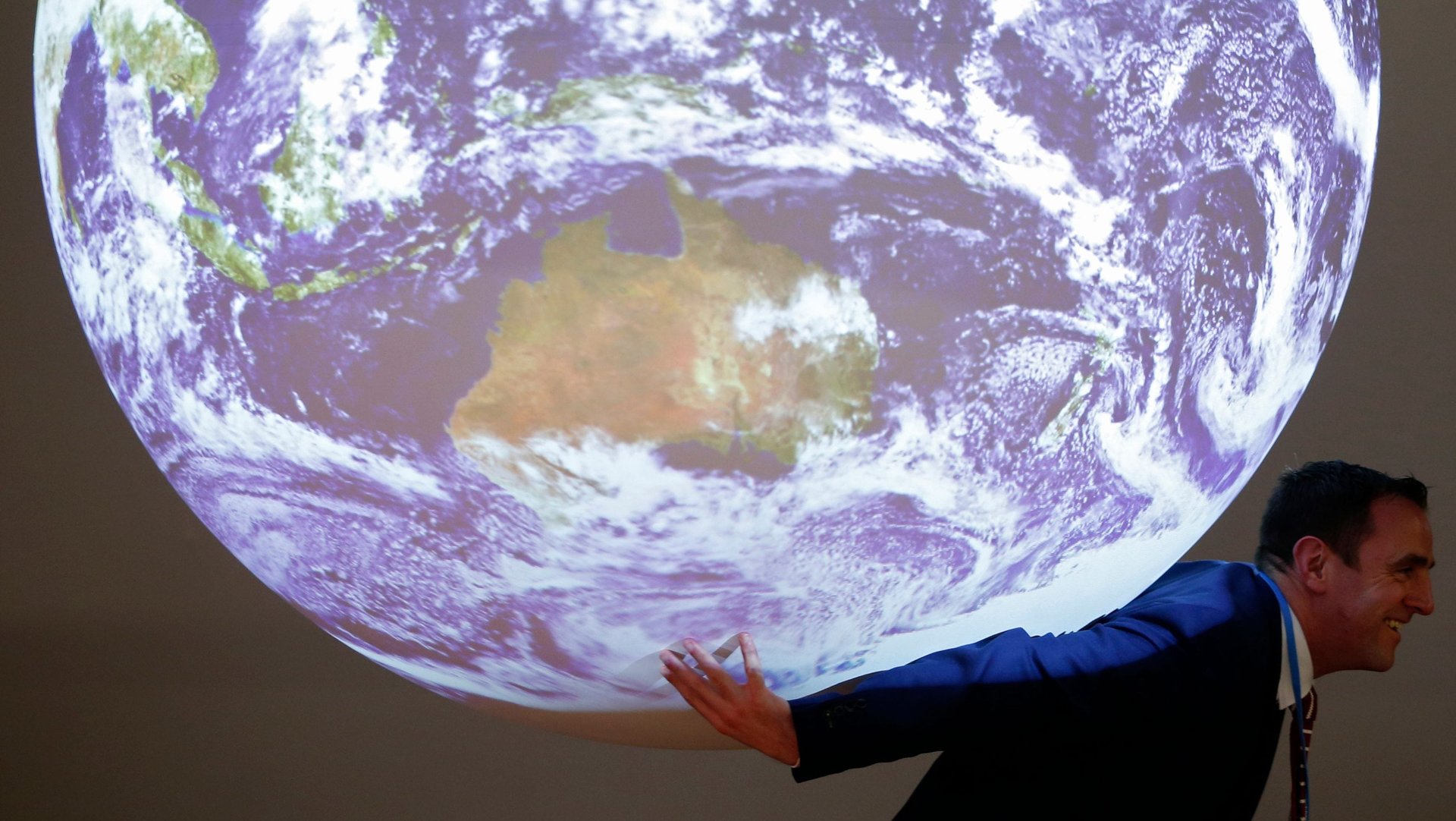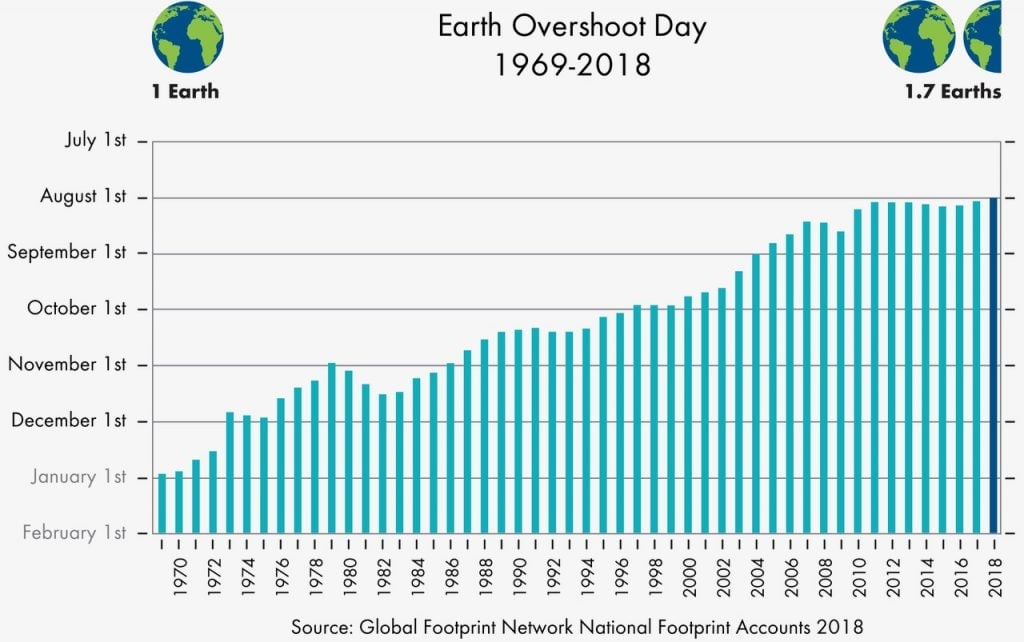Humans have depleted the Earth’s natural resources with five months still to go in 2018
The Earth is finite. Civilization’s appetite, it seems, is infinite. The Global Footprint Network (GFN) has been assessing just how much of the Earth’s resources we use, from water to clean air, and the day each year when our species overshoots the planet’s ability to annually regenerate itself.


The Earth is finite. Civilization’s appetite, it seems, is infinite. The Global Footprint Network (GFN) has been assessing just how much of the Earth’s resources we use, from water to clean air, and the day each year when our species overshoots the planet’s ability to annually regenerate itself.
Humans have overshot nature’s annual budget starting in the early 1970s, and every year, the overshoot date keeps creeping up. In 2018, it’s August 1.

Every minute past overshoot day is the equivalent of drawing down capital rather than living off interest. “One year is no longer enough to regenerate humanity’s annual demand on the planet, even using conservative data sets,” states GFN.
To calculate the date, GFN divides the planet’s biocapacity (ecological resources generated each year) by the totality of humanity’s demand on those resources. It uses 15,000 data points collected by the United Nations for each country going back to 1961, which can be categorized into four main factors, says the GFN: how much we consume, how efficiently we make stuff, our population, and nature’s productivity. You can explore the full dataset here.
In 2018, we’ll use up the equivalent of 1.7 Earths to support human civilization. At current rates, two Earths will be needed to keep up with demand by 2030. The resulting degradation is visible in deforestation, collapsed fisheries, drought, and greenhouse-gas emissions, causing massive dislocation, economic damage, and species extinctions across the planet.
The GFN estimates that 86% of countries are currently living beyond their means, generating what it calls an “ecological deficit.” Some countries are far worse than others. If the whole world consumed resources at the rate of Americans, for example, overshoot day would fall on March 15 (only five countries are worse than the US).
But bright spots are shinning through. In many countries, economic growth is decoupling from energy use and human consumption of raw materials ranging from from metal to cardboard. In recent years, European nations and the US have continued to grow economically while using less energy (although international trade masks some of these improvements). Partially this is due to changes in the way those in wealthier countries live. We’re far more efficient at manufacturing. Renewable energy is competitive, or cheaper, than fossil fuels. Populations have stabilized, or even fallen, while poverty levels in the developing world have decreased faster than any time in recorded history.
According to Amanda Diep of GFN, reducing natural-resource use doesn’t necessarily mean lowering living standards. “Everyone can live well within the means of our planet,” she said in an interview.
Where we go from here will be a battle between Prophets and Wizards. In a recent book, science writer Charles C. Mann used these terms to describe dueling visions of the future: those who believe we can innovate our way beyond natural limits through science and technology (the Wizards), and those who believe transgressing those boundaries invites disasters (the Prophets). “Both of them have really strong arguments,” Mann said in an interview with Grist. We seem trapped, however, in a debate that rejects one view at the expense of the other. “It seems perfectly logical to have both, but that’s not what seems to happen,” he said. The reason is that it’s a debate of values.
Mann distills the tension as one between community and liberty. If, for example, we’re going to solve climate change, do we embrace renewables and phase out nuclear power, or do we opt for global technical fixes such as carbon-dioxide removal and geo-engineering? The first option appeals to the Prophets’ values: a distributed solution working with nature and communities. The second option, relying on the technical might of geo-engineering, fits into the Wizards’ worldview, which seeks to address the climate problem in ways that maximize individual liberty even if it disregards natural limits.
“There’s no law of physics that says you can’t have both,” Mann says. “But it’s hard because these value questions are at the bottom.”